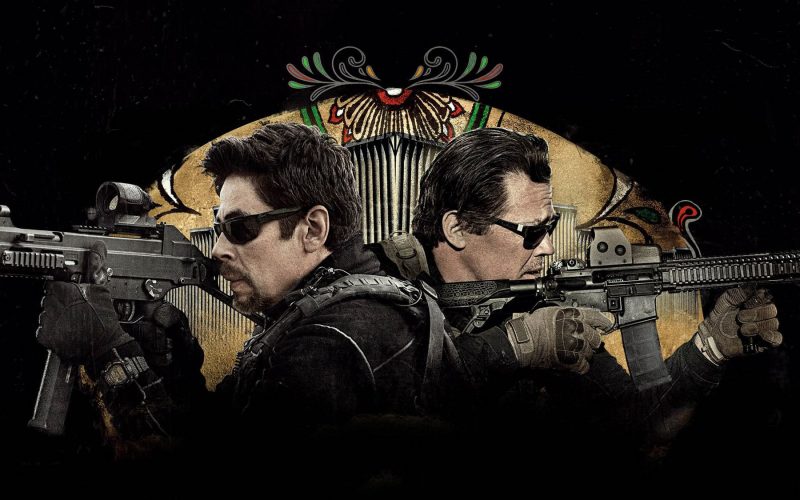Sicario: Day of the Soldado (2018) – Review.
Dedicated to the memory of Jóhann Jóhannsson, the composer of Sicario who sadly passed away early this year, Soldado marks what can only be interpreted as an attempt to expand Denis Villeneuve’s original into a full-blown franchise. With Taylor Sheridan back on writing duties, who’s been on a hot streak for a little while now, out goes Emily Blunt and returning is Josh Brolin and Benicio del Toro for a morally challenging thriller lacking in the same methodical slow burn of the previous film.
There’s one sequence which reminded me of the traffic-heavy border scene in the 2015 original, coming at the midpoint of Day of the Soldado as a convoy of military vehicles is moving into Mexico. While not as gripping as the former film’s scene, incoming director Stefano Sollima narrows the focus in on a young girl whom the convoy is attempting to deliver. The suspense builds for a few minutes, and composer Hildur Guðnadóttir gallantly attempts to mimic the work of Jóhannsson particularly here, but when the action starts cutting to the child in the car, whose hands cup her ears and whose head is bowed against the back of the seat in front of her, the scene is elevated. All she can do is scream, and it’s there that the truly frightening reality of the moment kicks in.
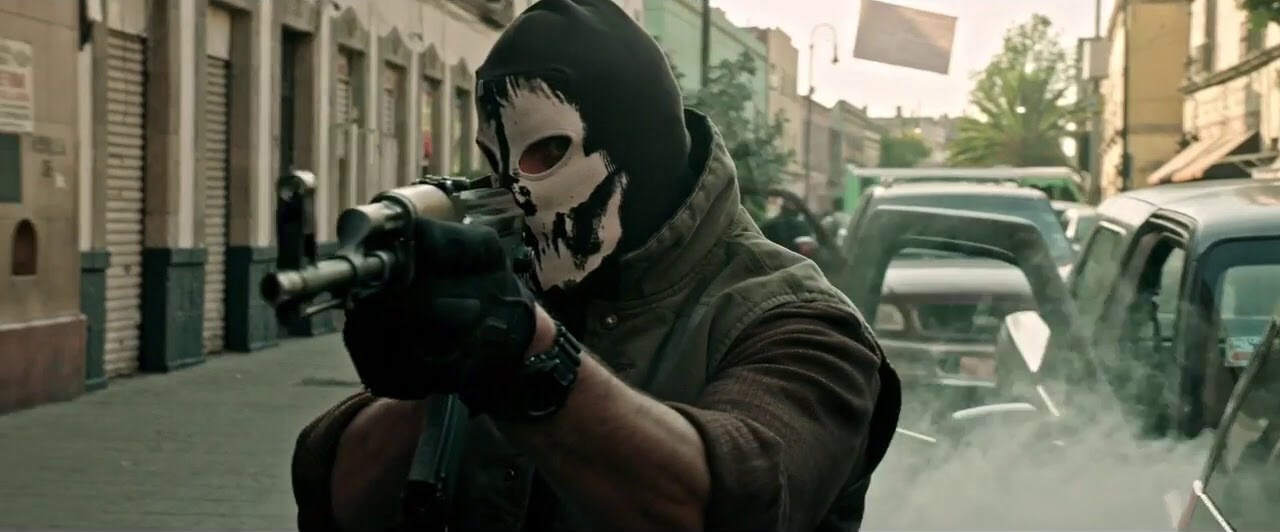
The film has just a few of these moments, but they range from terrifying to downright upsetting. The latter is the best descriptor for the opening scene, in which we witness a number of suicide bombings that instigate the need for Josh Brolin’s CIA operative Matt Graver to be called in. Brolin so completely embodies the role here, and in two films he’s crafted a rather memorable character, but the film becomes more interested in del Toro’s lawyer-turned- hitman Alejandro Gillick. It’s some time before Alejandro is introduced in the film, but from the midpoint onward it becomes entirely his film. The brilliant moments in the script are defined by the facade of its ambition, going so close as to promise a war before simmering things down. I applaud the audacity, and in the second half it’s a very personal film. As such, it’s devoid of a compelling antagonist unless you count the nature of the situation itself.
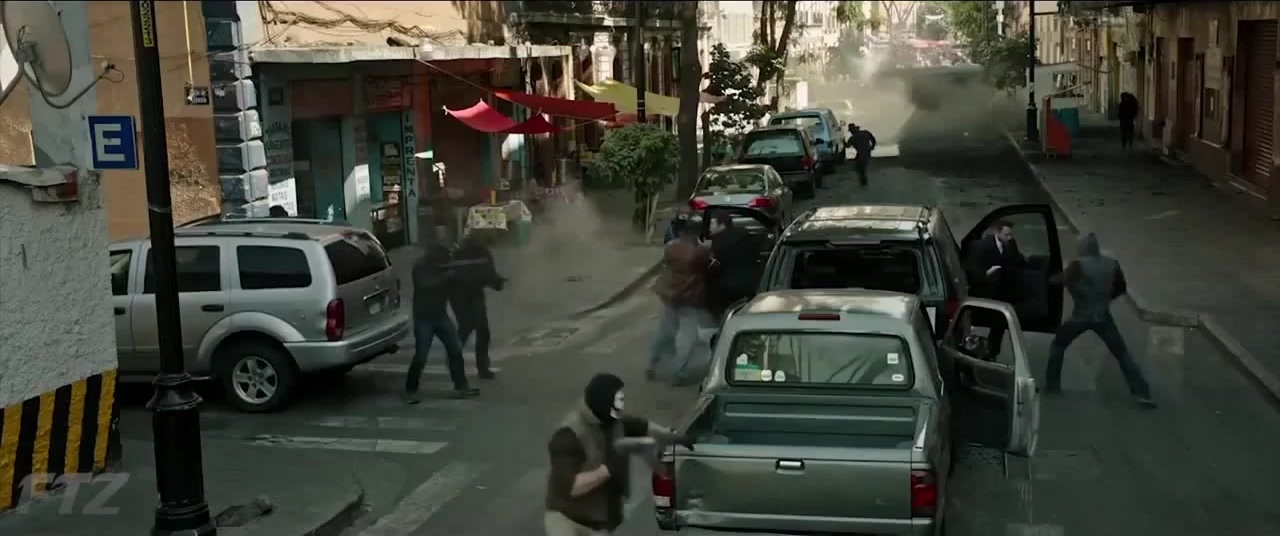
Sheridan’s script focuses in on the children in the narrative. Isabela Moner plays Isabela Reyes, the daughter of a cartel kingpin and the target of a convoluted plan that Matt concocts to pit the cartels against one another. Isabela is introduced as a hard-mouthed, aggressive teenager, insinuating that her father has instilled in her a sense of entitlement but also a refusal to be trampled on by others. Unfortunately, Isabela never again gets a chance to progress forward as a character. Instead, unlike in films such as Logan, Sheridan and Sollima are seemingly unsure of what to do with her. So they do nothing. She becomes an integral piece of the narrative, but nothing more.
A young Mexican-American boy, Miguel (Elijah Rodriguez), is central to the remaining major subplot in the film. He’s at the other end of the extreme, an American citizen recruited by a family member to help smuggle people across the border. Again, he’s a character that doesn’t feel entirely rounded and as such the weight of his arc isn’t as heavy as it ought to be. As a whole, both this and its predecessor are films where the emotional investment is secondary. A lot of that might have to do with how plot-heavy the film is. We’re essentially learning about Matt’s plan as it’s happening, or even after it. If we’re a step behind the protagonists, it’s hard to identify with them on a personal level. The first film though used an audience stand-in to help navigate us through its dreary territory.
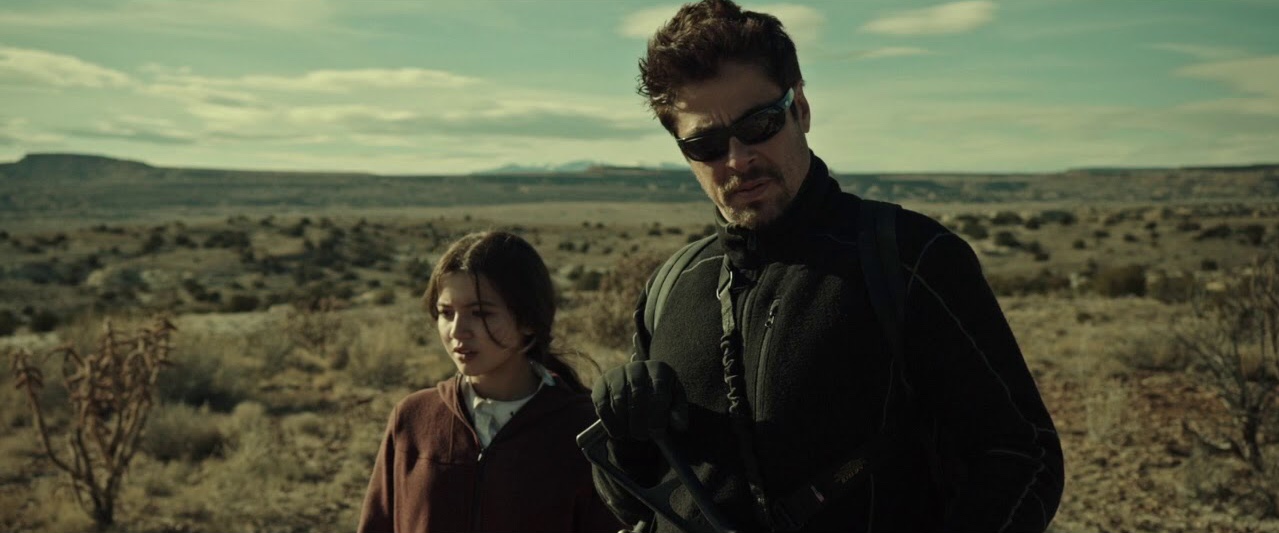
Regarding Alejandro, he certainly has a backstory that we can empathize with but other than that he’s a mystery. His motivation to help the daughter of the cartel leader is understandable, but dissipates some of the mystique behind the character. In Sicario, not knowing why he’s doing the things he does on a moment-to-moment basis is what makes him so alluring and scary. Less so here, though it can’t be perceived as sudden or out of character based on what we’ve learned about the character so far. Matt meanwhile continues to show his ruthlessness and his commitment to the mission. That mission though comes into question and unfortunately we aren’t shown what that means to the character to a greater extent.
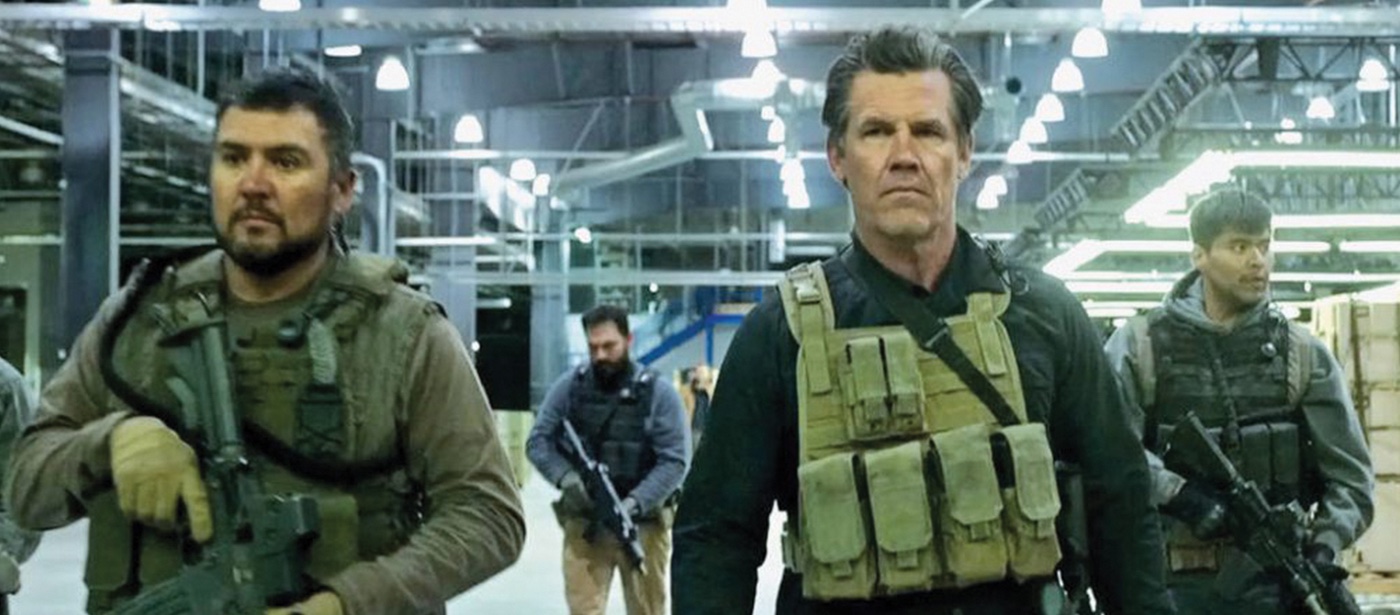
The third act provides us with enough suspense to drive us toward the film’s close, though victory seems rather abrupt if we consider the build-up. Character decisions feel unearned, though it’s hard to imagine that they ever could feel earned because both of these films, by design, are made up of characters lacking in human qualities. That’s what Emily Blunt’s character brought to the first film. She was the audience’s eye into this chaotic world, and someone we could gravitate toward with ease. The closest character that resembles this is Isabela, which is a problem. Kate Macer wasn’t the best character in Sicario, but she was the most important. In Soldado we have the most captivating characters back, but we don’t have anybody to cling to in the same way.
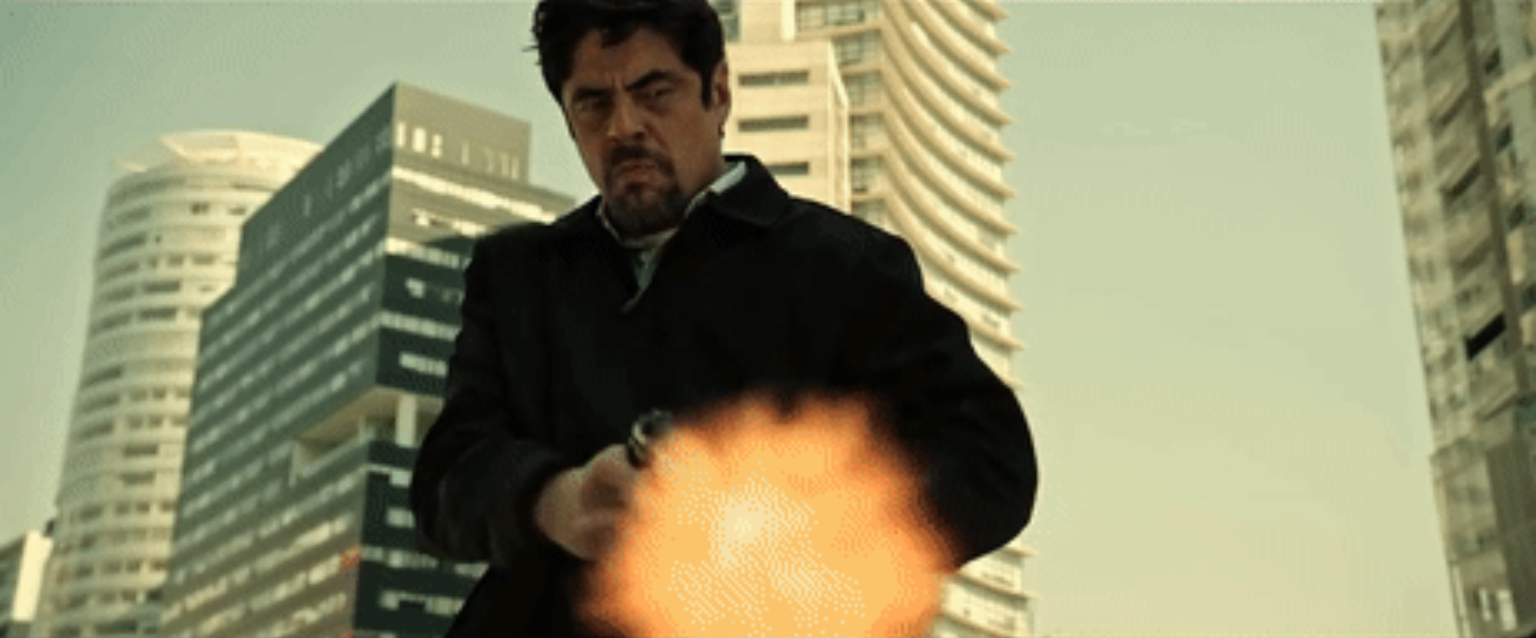
The chemistry between Brolin and del Toro elevates every scene that the two share, so much so that when the film slows down almost to a crawl and separates the two in its second half the difference is evident. The first half of the film is heart-pounding and thrilling, and the soundtrack homages Jóhannsson’s previous score in a way that makes this bleak series immediately identifiable. When the film slows down into something closer to a character piece later on, it can’t quite deliver that same level of quality. It ultimately ends on a whimper, teasing future stories but not quite completing its own.
Film ’89 Verdict – 6.5/10
Sicario: Day of the Soldado is on general release now.

